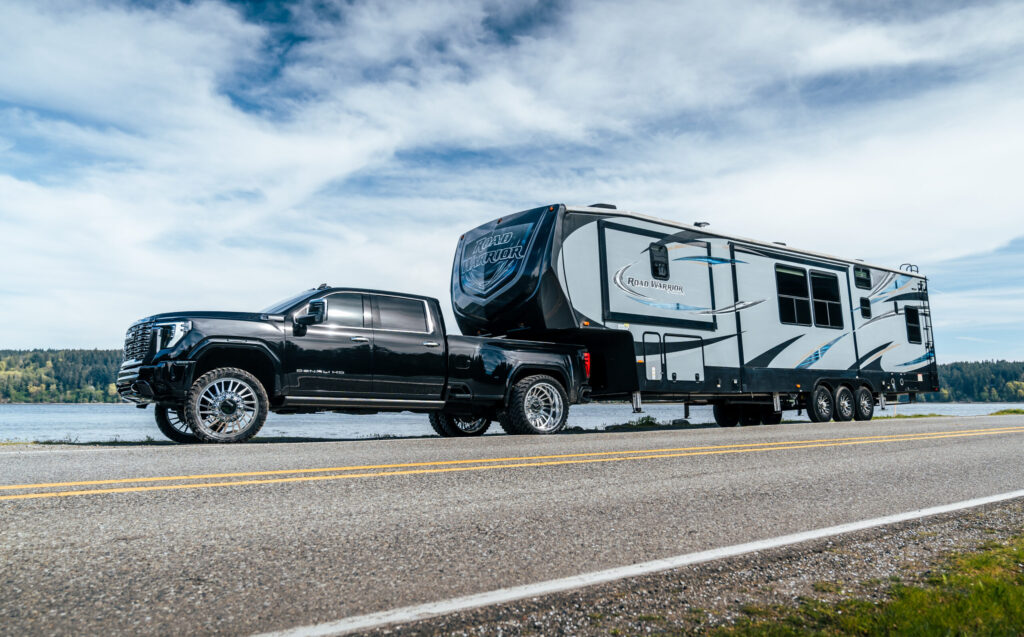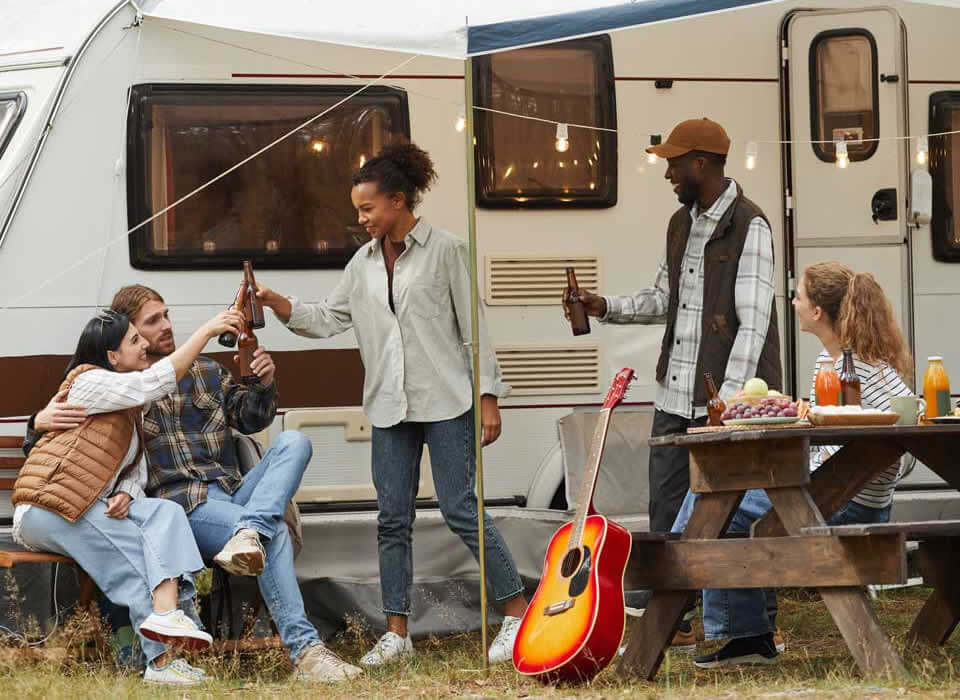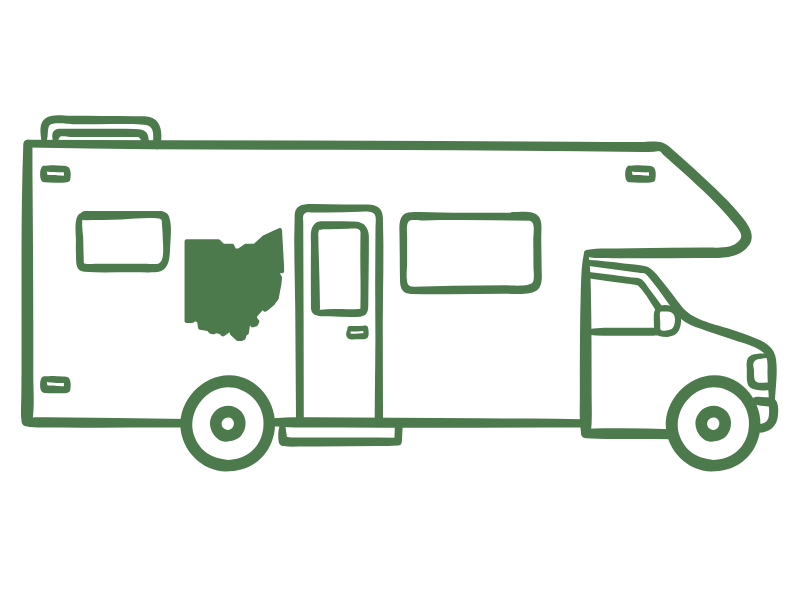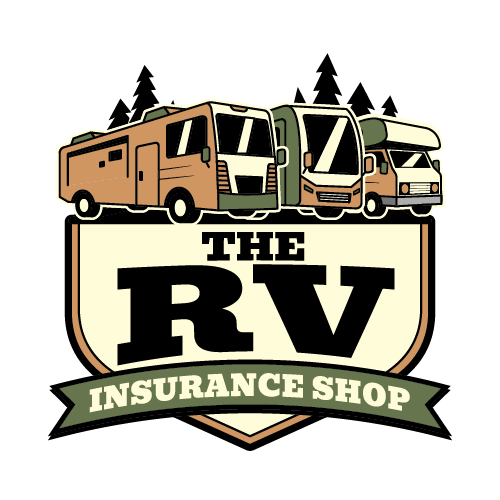Vermont RV Insurance
Vermont’s winding backroads, forested mountains, and tranquil lakes make it a dream destination for RVers. Whether you’re parked near Lake Champlain, enjoying a leaf-peeping drive through the Green Mountains, or cozying up at a winter campground, traveling by RV is one of the best ways to experience the natural charm of the Green Mountain State. To ensure those travels go smoothly, it’s essential to carry the right Vermont RV insurance.
With changing seasons, rural terrain, and local insurance laws, Vermont RV owners face unique challenges. A comprehensive RV insurance policy not only ensures compliance with state requirements but also protects your investment from accidents, weather damage, and other risks—whether your RV is in motion or stored for the winter.

Vermont RV Insurance Frequently Asked Questions
Yes, RV insurance is required in Vermont for all motorized RVs, including Class A, B, and C motorhomes. These vehicles must carry the same liability insurance as personal automobiles to operate on public roads. This includes bodily injury and property damage liability coverage.
Towable RVs—such as travel trailers, fifth wheels, and pop-ups—do not require separate liability insurance. However, they are not covered for theft, fire, or physical damage unless you add a specific RV trailer policy. Many Vermont RVers choose to insure their trailers to ensure full protection year-round, especially during long-term storage or snowy off-seasons.
Your RV is more than a vehicle—it’s your gateway to adventure, relaxation, and quality time on the road. Vermont RV insurance protects that investment from the unexpected, whether you’re camping in the summer or storing your rig through the snowy months. From roadside accidents to storm damage, the right coverage ensures you won’t be left paying out of pocket for costly repairs or liability claims.
Protecting your motorhome or trailer is just as important as maintaining it. With proper coverage, you can enjoy Vermont’s natural beauty with the confidence that you’re prepared for whatever comes your way.
- $25,000 for bodily injury per person
- $50,000 for bodily injury per accident
- $10,000 for property damage per accident
Note: These are the minimum required limits in Vermont, but many RV owners choose higher coverage levels and additional protections to account for rural travel conditions, severe weather, and the overall value of their RV and its contents.
RV insurance premiums in Vermont depend on several factors, including your RV’s class and value, how often you use it, your driving record, and where you store it. Rates may be lower for seasonal users who store their RV during winter and higher for full-time RVers who need extended coverage.
Additional factors that influence premium costs include your claims history, the age of the RV, and whether you opt for extra protections like personal effects coverage or roadside assistance. Vermont’s lower population density and relatively low accident rates may contribute to more affordable premiums compared to more urban states.
Recommended Coverage for Vermont RV Owners
To protect against common hazards and travel confidently, many RV owners in Vermont enhance their policies with these options:
- Comprehensive Coverage: Covers non-collision damage such as theft, fire, weather, and falling trees.
- Collision Coverage: Pays for repairs after an accident, whether with another vehicle or object.
- Personal Effects Coverage: Protects the contents of your RV—like electronics, gear, and clothing—from loss or theft.
- Vacation Liability: Offers protection if someone is injured at your RV site while it’s parked and used as a residence.
- Emergency Expense Coverage: Covers temporary lodging or transportation if your RV becomes uninhabitable during travel.
- Full-Time RV Insurance: Ideal for RVers who live on the road year-round, with broader liability and personal property coverage.
- Roadside Assistance: Helps with breakdowns, towing, flat tires, and lockouts—especially useful in remote parts of Vermont.
Ways to Save on RV Insurance in Vermont
- Bundle your policies: Combine RV insurance with home or auto coverage for multi-policy discounts.
- Use secure, indoor storage: Covered or climate-controlled storage during winter may reduce your premium.
- Report seasonal use: If you store your RV in the off-season, you may qualify for lower annual rates.
- Install anti-theft devices: GPS trackers and alarms can help reduce theft risk and may earn discounts.
- Maintain a clean driving history: No accidents or violations can lead to significant savings over time.

Testimonials
Marty Karriker is a class act! His communication and business ethics are top notch and it’s always a pleasure to work with him and his team.
- Andrew Steele (RVing with Andrew Steele)
Common RV Risks in Vermont
Owning an RV in Vermont means being prepared for both scenic adventures and local hazards. Common risks that affect RV insurance coverage include:
- Winter Weather: Heavy snow and freezing temperatures can damage stored RVs, especially when not winterized properly.
- Flooding and Ice: Spring thaw and rapid temperature changes can lead to water damage or slippery driving conditions.
- Deer and Wildlife Collisions: Rural highways are scenic—but also high-risk for animal-related accidents.
- Falling Trees and Debris: Forested areas can pose risks to RVs parked at campsites or on private property.
- Rodents and Pests: Especially during storage season, rodents can cause significant damage to wiring and insulation.

Request a Quote
We help RV owners throughout Vermont find coverage that fits their needs, lifestyle, and seasonal travel habits. Whether you’re a part-time camper or full-time road warrior, our customizable policies offer protection you can rely on.
Contact us today to get a free Vermont RV insurance quote and hit the road with peace of mind—no matter the season.

